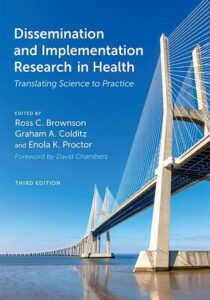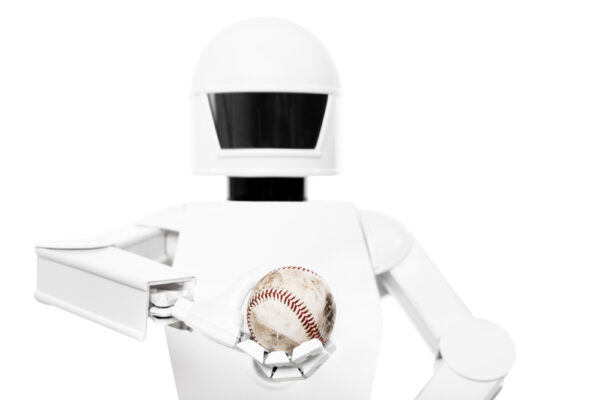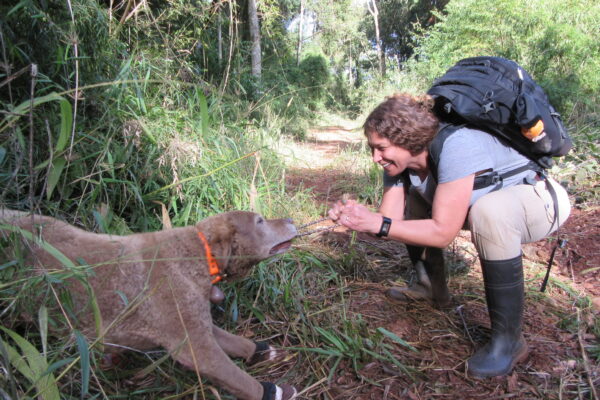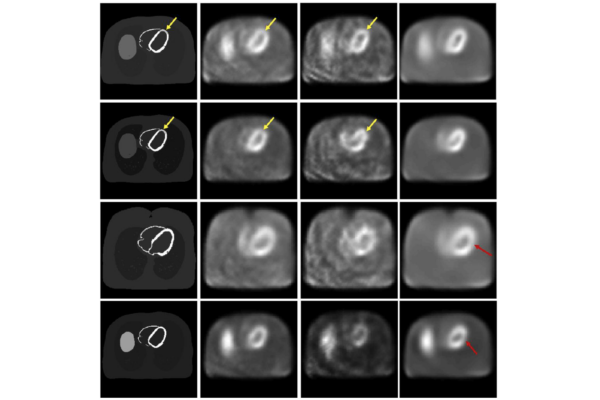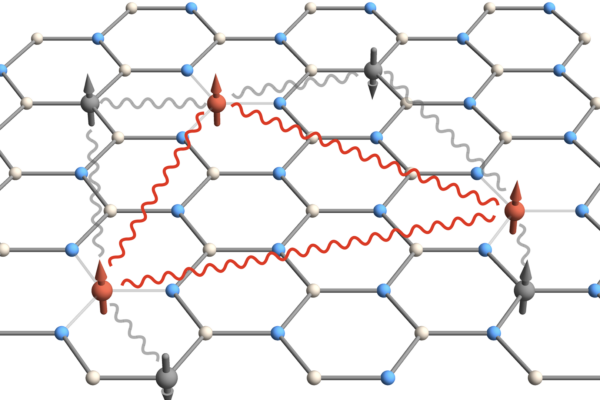Bias from pulse oximeters remains even if corrected by race, study finds
Neal Patwari and graduate students Francesca Bonetta-Misteli and Di Huang at the McKelvey School of Engineering found that even while pulse oximeters have been adjusted to account for darker skin tones, bias remains and must be fixed.
Dissemination and Implementation Research in Health
Translating Science to Practice (Third Edition)
The ultimate guide to dissemination and implementation research for public health, medicine, and the social sciences.
Schaal elected member of American Philosophical Society
Barbara A. Schaal, the Mary-Dell Chilton Distinguished Professor in the Department of Biology in Arts & Sciences, was elected a member of the American Philosophical Society in May. Schaal was among the first scientists to use molecular biology-based approaches to understand evolutionary processes in plants.
Missouri native is flowering earlier due to climate change
Biologist Matthew Austin in Arts & Sciences published a study in the American Journal of Botany that describes changes to the flowering time and other important life cycle events in Leavenworthia species, a group of small flowering plants found in glades in Missouri.
AI could transform baseball
A deep neural network model proposed by a faculty member at the McKelvey School of Engineering has been shown to boost the effectiveness of average and below average major league pitchers.
The AI battlefield
In his new book, alumnus Paul Scharre discusses what’s at stake for global security and human freedom, as well as how the U.S. can maintain a leadership position amidst game-changing technology.
Wonder, enchantment and the epic of evolution
As a biology faculty member, Professor Emerita Ursula Goodenough invited non-science majors to understand and reflect on the history of life on Earth. The second edition of her book, The Sacred Depths of Nature: How Life Has Emerged and Evolved, brings the wondrous saga to a new audience.
A dog’s work: Rescue animal goes all in for wildlife conservation
The legacy of Train, a retriever who assisted in conservation research, continues with a new study and a statue in Argentina.
Clinical utility, not ‘prettiness’
In a study published in Medical Physics, researchers in the lab of Abhinav Jha at the McKelvey School of Engineering evaluated artificial intelligence techniques for cleaning up medical images based on performance in clinical tasks.
Glitches in the matrix
As reported in a paper in Nature Communications, physicist Chong Zu in Arts & Sciences and his team are finding new ways to harness the quantum power of defects in otherwise flawless crystals.
Older Stories

